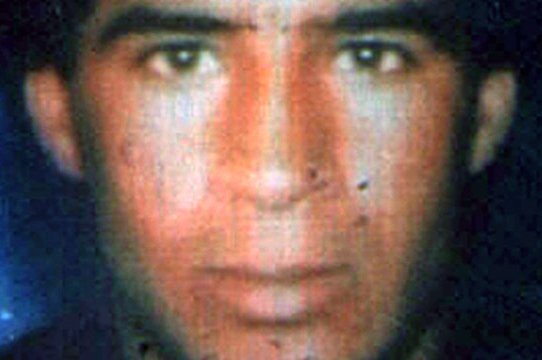By Ed Morrissey | POSTED 10:01 AM |
Faraj al-Shibli did not lack for enemies, it would appear. The Libyan government held him for a time after the attack on the US consulate in Benghazi, at least long enough for the FBI to interrogate him. Two days ago, another militia grabbed him in the former Cyrenaica capital of Marj, a town just off the Mediterranean, 96 kilometers from Benghazi. Yesterday, locals found his body:
Faraj al-Shibli, who was suspected of involvement in the 2012 attack on the U.S. diplomatic compound in Benghazi, Libya, has been found dead, a Libyan source and locals in the town of Marj said.
Al-Shibli, whose name is also spelled Chalabi, was last seen being detained by a local militia in Marj two days ago, a Libyan source said.
It is unclear what happened to al-Shibli since then, but his body was found Monday in the eastern Libyan town of Marj.
Locals in Marj also confirmed that al-Shibli’s body was found Monday.
Shibli didn’t lack for friends, either. CNN reports that investigators have discovered links between Shibli and al-Qaeda in the Arabian Peninsula (AQAP), which operates out of Yemen. That’s a different organization than al-Qaeda in the Islamic Maghreb, which has operated in North Africa for years, and which became one of the biggest winners from the US-NATO war against Moammar Qaddafi. The removal of Qaddafi left a huge vacuum for the Islamist terror networks, which took advantage of the failed Libyan state to recruit, mobilize, and attack. The link to AQAP undercuts the narrative that the Benghazi attack was just a target of convenience for local networks, if Shibli was part of it.
But there’s more, according to the initial CNN report. Shibli also had friends in Pakistan and the al-Qaeda network there. That’s the so-called “core” al-Qaeda, the group behind the 9/11 attacks as well as attacks on the USS Cole, the Khobar Towers bombing, and the bombings of our embassies in Tanzania and Kenya. If those contacts have been established and if they existed prior to Benghazi, then that puts an even more interesting twist on the fact that the Benghazi consulate got sacked on the anniversary of the original 9/11 attacks.
All of this raises an even more intriguing question: why didn’t the US get Shibli from the Libyans? The Libyans had him securely enough that the FBI had the opportunity to interrogate him. In fact, the Libyans arrested him on his return from Pakistan, which should have raised lots of eyebrows. Did the Libyans refuse to extradite him? Did we ask? Or did we somehow find another way to “bring justice” to a Benghazi mastermind?
Originally posted on HotAir.com.

